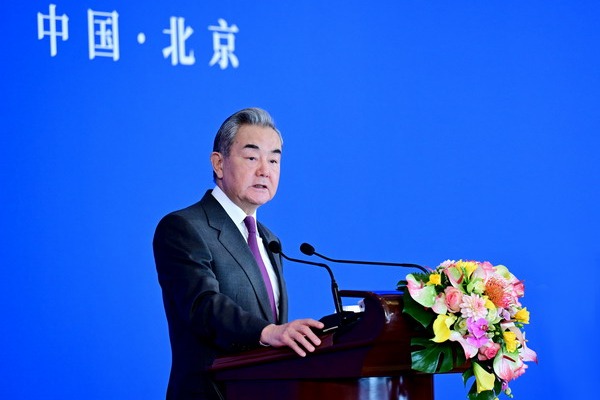China-US civil discussion held

China and the US should keep up people-to-people exchanges to help make sure that bilateral ties develop on the right course, attendants at a bilateral civil discussion said on Wednesday.
Themed Work together to achieve comprehensive and stable China-US relations, the discussion in Beijing attracted people from NGOs, think tanks, universities and companies in both countries.
Chinese and American people have played an important role in the development of China-US ties, and people-to-people exchanges have become a "stabilizer" for the ties, said Wang Yajun, adviser of the Chinese People's Association for Peace and Disarmament.
Wang, also vice-minister of the International Department of the Central Committee of the Communist Party of China, called for civil sectors in both countries to work together to push for the improvement of bilateral ties.
They should enhance respect and trust between the two peoples and promote their friendship, he said, emphasizing that "the obsession to create chasms or even take the two countries to a new cold war is totally against the trend of history".
Wang's remarks were echoed by US participants.
"The thing that happens when people have firsthand contact with each other's cultures is an increase of understanding and an increase in people's desire to work toward better relations," said Richard Erstad, member of the board of directors of the American Friends Service Committee.
"If they have a positive experience of people-to-people exchanges, then that lives on, and it helps influence the policies of government," Erstad said.
Speaking of the roles civil sectors can play in improving bilateral ties, Erstad said the US should improve the climate for granting visas to Chinese students to study and for people to come for conferences and exchanges, while there is a lot that China can do to encourage more US people to come to its universities or for other exchanges.
Representatives also expressed their hope that bilateral ties will improve and exchanges and cooperation will be restored.
Qi Zhenhong, president of the China Institute of International Studies, said he is "cautiously optimistic" about the prospect of the ties, partly because the "deep friendship" between the two peoples make the ties "highly resilient".
People in the US who take a maximum pressuring approach toward China will in the end realize that it is not in line with the US's interests, Qi said.
Also, they should give up the "strategic miscalculation" that China, through development, will replace or challenge the US, and should respect China's sovereignty and territorial integrity, he said.
Alan Beebe, president of the American Chamber of Commerce in China, recalled his travel across the country in 1986. He said the trip sparked his interest in China and he has lived in China for the last 18 years.
"There are tens of thousands ... of Americans who have a similar experience to mine here in China. ... We understand firsthand the importance of people-to-people exchange," Beebe said.
Speaking of the phase-one agreement that the two countries reached in their trade talks last week, Beebe said it is "a very, very good start".
If the deal is finalized, it shows the two countries "can come together and agree on at least of some shorter-term solutions", he said. "It kind of puts a floor into the discussions that hopefully can then go upwards."
Wednesday's discussion is part of the ninth China-US Civil Peace Forum, which was co-hosted by the Chinese People's Association for Peace and Disarmament and the American Friends Service Committee.
The forum was held on Tuesday and Wednesday.

































